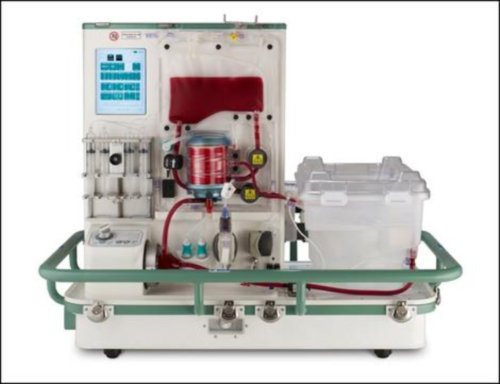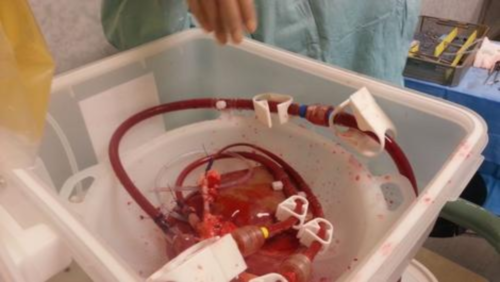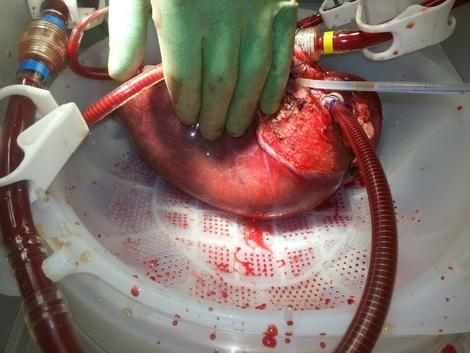There are currently over 30,000 patients on the waiting list for a liver transplant in Europe and the United States. Of those patients, 25% die while waiting for a new liver.
Once a liver becomes available, doctors have to cool it to 39.2ºF to preserve it, and still it will only survive for about 12 hours.
Now, thanks to new technology developed by a team of researchers at the University of Oxford, it is now possible to keep a human liver “alive” for 24 hours. The team's studies suggest that this survival time could even increase to 72 hours one day.

The first device to keep a human liver functioning outside of the body. ( Image via Oxford University.)
How it works
The new technology works by connecting a human liver to a device that raises body temperature and circulates oxygenated red blood cells through its capillaries. Current transplants require organs to be placed on ice to slow down their metabolism, but this often leads to organ damage.
With this medical advancement, though, once hooked up to the machine, the liver functions normally, just as it would inside a human body, allowing it to regain its color and produce bile.

First two trial procedures were performed at Kings College Hospital in London last month. (Image via Oxford University.)
Two trial procedures were performed at Kings College Hospital in London last month on patients that were on the waiting list for a transplant.
“It was astounding to see an initially cold grey liver flushing with color once hooked up to our machine and performing as it would within the body. What was even more amazing was to see the same liver transplanted into a patient who is now walking around,” said Professor Constantin Coussios of Oxford University, one of the machine’s inventors.

Along with the obvious benefits of such a device, it also allows medical professionals to assess the liver and determine how well it is functioning before committing a patient to surgery.
“Despite all the advances in modern medicine, the fundamentals of liver transplantation have not changed in decades. This is why the device is so exciting,” said Professor Nigel Heaton, Consultant Liver Transplant Surgeon at King’s College Hospital.
King's College Hospital is the largest liver transplant center in Europe and carries out over 200 transplants every year.
For more information visit the University of Oxford website.
Advertisement





